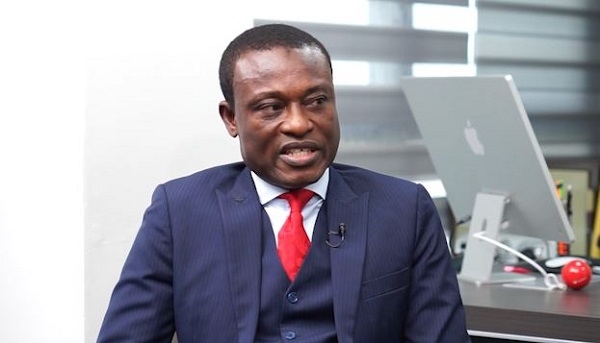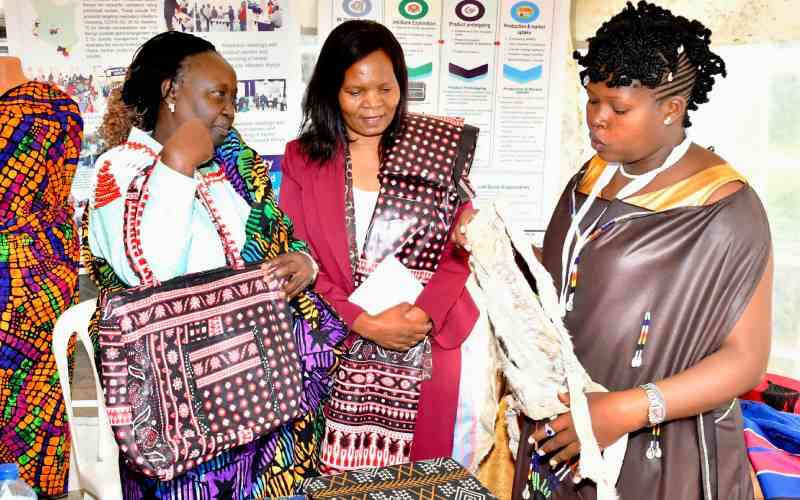BoG First Deputy Governor calls for Collaboration to protect Africa's financial systems from Cyber attacks
Accra, June 22, GNA – Dr Zakari Mumuni, the first Deputy Governor of the Bank of Ghana, has called for collaboration among African countries to build a resilient financial system free from cyber attacks.
Speaking at the 14th Annual Roundtable of the Leaders of the African Financial Inclusion Policy Initiative, Dr Mumuni said collective commitment was required to safeguard the integrity, resilience, and inclusiveness of Africa’s financial systems in the fast-evolving digital era.
“Cybersecurity threats do not respect politics. No country, however advanced, can confront them alone. Through peer learning, harmonized supervision, and shared intelligence, we are building a collective response that reflects our unique regional realities,” he said.
Dr Mumuni called for investments in common frameworks for early warning and incident reporting, scenario-based preparedness exercises, and proportionate regulation for fintechs and e-money providers as well as cooperative cross-border response mechanisms.
Cybersecurity must also be embedded into financial inclusion strategies, not as an afterthought, but a foundation.
Let us protect our most vulnerable consumers with clear safeguards, inclusive product design, and strong redress mechanisms.
“Let us also invest in the supervisory capabilities and digital infrastructure needed to stay ahead of the evolving threat. And let us deepen our regional cooperation, recognizing that resilience of one is the protection of all. Permit me to conclude at this point, Distinguished Guests.
He said the digital financial future the continent envisioned was rich with promise, but that promise would only be realized if it was anchored on inclusive and skilled systems.
He said digital financial services such as mobile money, digital credit, agency banking, and many others, were transforming the lives of many, empowering small businesses and extending the reach of finance to previously excluded sections of the population.
“Yet, this transformation brings new risks. The very technologies that enable access to innovation also expose our systems to sophisticated cyber threats,” he said.
Dr Mumuni said regulators now had to deal with a dual responsibility of promoting inclusion while defending the integrity and resilience of the financial infrastructure.

In 2022, for instance, Ghana recorded over 21,000 cyber fraud attempts in the financial sector, most targeting digital platforms.
Across Africa, the cost of cybercrime is estimated to have exceeded $4 billion annually, according to Interpol.
“This reality underscores a simple truth.
Financial inclusion without system integrity is unsustainable. Cybersecurity is no longer an IT issue. It is a strategic imperative at the core of financial governance,” Dr Mumuni said.
“Cybercrime is not a distant risk. It is the present danger. Public trust, institutional confidence, and systemic stability now hinge on our ability to anticipate, withstand, and respond to cyber threats,” he said.
Dr Mumuni said the Bank of Ghana had long realised the need to deal with the threats head on and issued one of the continent’s earliest cyber and information security directives for financial institutions, mandating risk-based frameworks, incident response protocols, and regulatory reporting.
He said over 40 financial institutions had been integrated into the Financial Industry Security Operations Center, enabling real-time threat detection and response.
The BoG also conduct annual cybersecurity maturity and assessment using international frameworks to inform supervisory action and identify systemic gaps.
In 2024, over 40% of assessed entities showed critical vulnerabilities, particularly in access, control, and incident response.
He said the BoG was addressing these gaps with targeted interventions in close collaboration with Ghana’s cybersecurity authority, the World Bank, Interpol, and the Africa Cyber Security Resource Center to bolster expertise and coordinate responses at scale.
The Bank is also strengthening consumer protection, including compliant resolution protocols and disclosure standards, expanding financial literacy, particularly for women, youth, and the underserved communities and partnering with schools, religious bodies, and civil society organizations to promote digital safety and early awareness.
“We believe that financial inclusion must be built on trust. Trust in the system, trust in providers, and trust that revanches will be addressed fairly and swiftly,” he said.
Dr Mumuni said the BoG was also committed to gender-inclusive finance.
In 2023, Ghana joined the African Development Bank’s AFAWA initiative, supporting financial institutions to unlock credit for women entrepreneurs through risk-sharing instruments and technical assistance.
Ghana is looking to establish a Women’s Development Bank with a seed capital of over GHS51 million, allocated in the 2025 budget.
This institution will directly address the persistent credit gap faced by women-led businesses, particularly in agriculture, trade, and in the tech area.
These initiatives reflect our belief that women’s financial inclusion is not a social obligation, but a smart economic strategy.
Dr. Alfred Haning, the CEO of AFI, said while digitalization was transforming economies and financial ecosystem, making financial services more accessible to lower income individuals, there were risks of technologies.
He said these technologies risks could have dramatic consequences, especially for the vulnerable, who could lose the little they have in just one day.
He said global cyber crime was growing with Africa bearing a disproportionate share of direct attacks.
According to numbers from Interpol cyber attacks in Africa have increased by nearly 150% in the past year.
Reported losses from cyber crime in Africa now reach billions of dollars with 58% of Africans very concerned about cyber crime, up from just 29% two years ago.
“This is a clear signal why I think we want to work on the cyber threats by escalating to systemic levels. They are targeting core financial infrastructure, and they are threatening to erode the trust that we have built with so much effort over the past years,” he said.

Dr Hannig called for coordinated efforts to build cyber resilience, enhance regulatory frameworks and protect Africa’s digital future, adding that cyber resilience must be a center pillar of financial oversight, a foundational element of systemic stability and credibility.
During a panel discussion, the speakers argued as regulators, central banks must take a proactive and enabling leadership role in fostering cyber resilience, not only within the regulated institutions, but also institutions that were outside the system.
They also agreed on the establishment of a robust IT systems to safeguard consumers of financial services.
The Roundtable on the theme: “Strengthening Cyber Resilience in Digital Financial Services in Africa: The Role of Financial Regulators” provided a platform for Leaders from AFI member institutions in Africa to engage in in-depth discussions on enhancing the cyber resilience of Africa’s digital financial services.
The dialogue focused on strengthening the role of financial regulators in policy formulation, risk management, regulatory compliance, and cross-border cooperation to foster a secure, inclusive, and sustainable digital financial ecosystem.
GNA
Christian Akorlie











